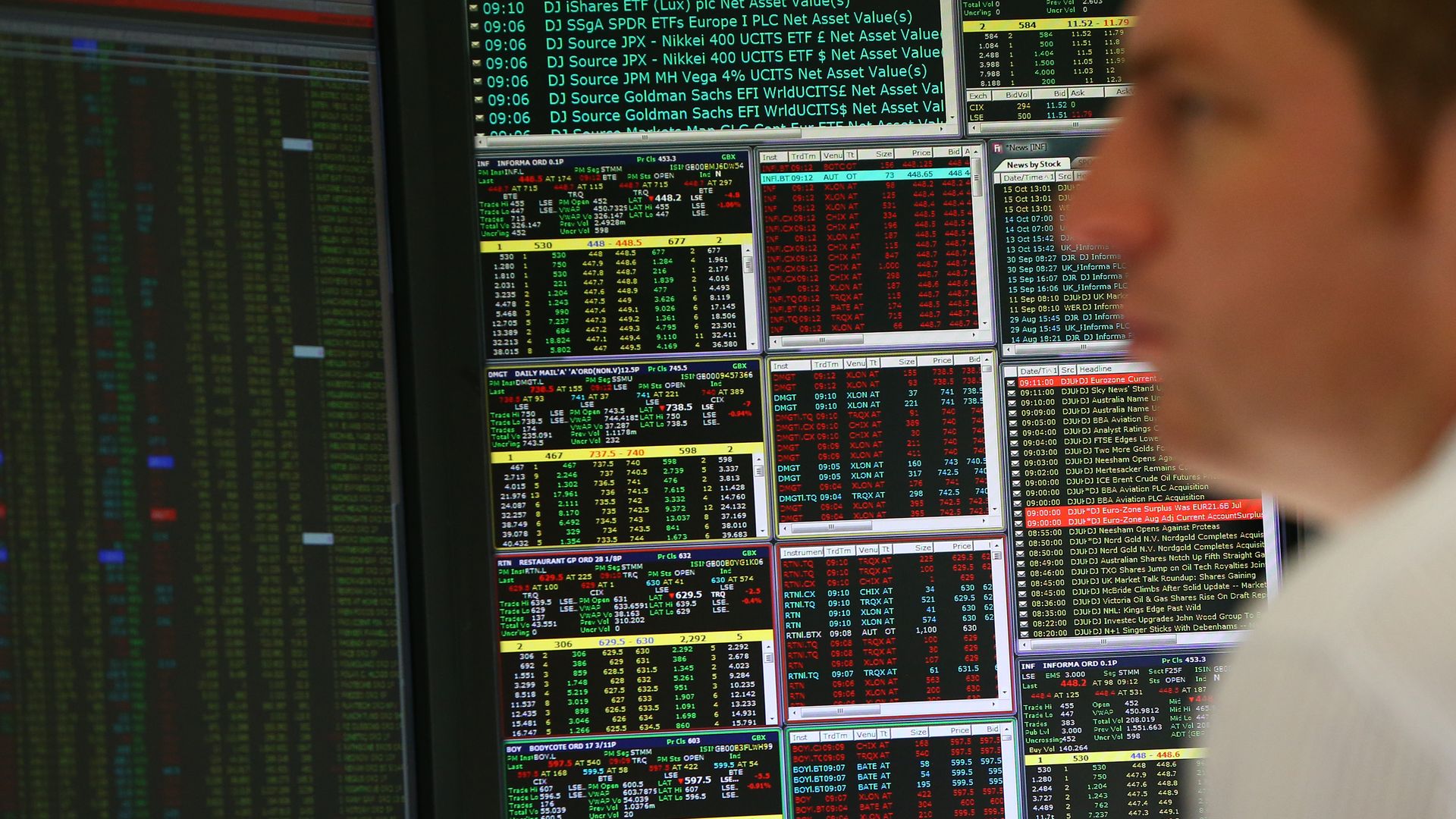More firms throw weight behind new Wall-Street backed stock exchange
Add Axios as your preferred source to
see more of our stories on Google.

Photo: Carl Court/Getty Images
Goldman Sachs and JPMorgan are joining the list of banks, brokerages and trading firms that back the Members Exchange, or "MEMX" — a new stock exchange that says it will go live in July and challenge incumbent exchanges by charging lower fees.
Why it matters: MEMX, which is still awaiting regulatory approval from the SEC, could be a formidable competitor to the entrenched "big three" stock exchanges.
The big picture: All but one of the nation's stock exchanges (not including dark pools) are controlled by three big players: Intercontinental Exchange (the parent company of NYSE), Nasdaq and Cboe.
- MEMX's arrival comes at a time of strife: The SEC is looking to loosen the grip the major exchanges have on businesses, like stock market data.
- And NYSE, Nasdaq and Cboe all sued the SEC last year over the regulator's effort to limit the fees they can charge for trading.
What's new: MEMX said it's raised an undisclosed amount of money from new members JPMorgan, Goldman Sachs and trading firm Jane Street Capital.
- Other MEMX backers include Morgan Stanley, Bank of America, and Fidelity Investments.
- It's also backed by Citadel Securities and Virtu Financial — two of the biggest stock trading firms, which each control about 20% of trading volume, per the WSJ.
Between the lines: MEMX pitches itself as a low-cost, and more transparent, alternative to the long-established exchanges, pouncing on complaints from the big banks and brokerage firms (including from Virtu) that the exchanges charge too much for stock market data.
- MEMX said it won't charge for market data when it launches, though CEO Jonathan Kellner told Axios there would be charges eventually. He did not specify when or how much.
The intrigue: MEMX is not the only newcomer aiming to challenge the establishment. Other contenders are also ramping up to compete in the various businesses the "big three" exchanges dominate.
- Miami International Holdings, which operates options trading platforms, said last week that it planned to launch stock trading in September — though that's dependent on when and if regulators approve its plan.
- Long-Term Stock Exchange (LTSE) — which hasn't launched yet, but won regulatory approval last year — hopes to draw companies to list on its exchange with a focus on founder-friendly benefits, like tenured share voting.
The other side: Nasdaq and the New York Stock Exchange raised questions about MEMX in filings to regulators.
- NYSE filed a comment to the SEC questioning what access MEMX backers will have to records that other exchange members won't have, something that could "pose significant conflicts of interest." (MEMX says its funders won't have access to regulatory and trading records.)
- The Nasdaq said that while it supports competition, it hopes that MEMX will not short-change technology investments "as it strives to save money for its member-owners," referring to its Wall Street backers.
Others worry more trading venues would further fragment the market and siphon liquidity.
- "Fragmentation for fragmentation's sake, or because our regulations make it advantageous for anyone to open a market in today's world, doesn't add value," Parker Lim, Cboe's head of equities strategy, told S&P Global last year.
What they're saying: "Competition in areas that need competition is good for the markets," Kellner told Axios.
Go deeper:
